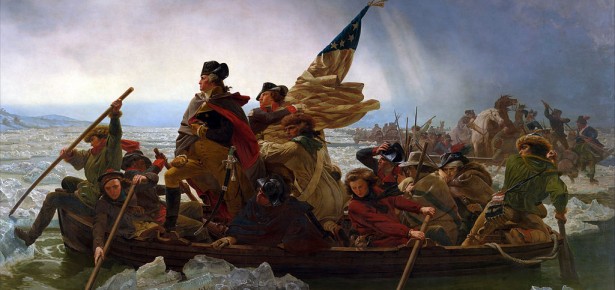
It might be said that the Declaration of Independence, with its statement “all men are created equal,” marks the Fourth of July as a radical holiday, not just a national one. Those gathered in Philadelphia on July 4, 1776, after all, were revolutionaries taking part in an armed uprising against monarchical rule to break the colonies free from empire.
Many subsequent radicals, however, have seen in celebrations of the Fourth of July a rank hypocrisy, including the African-American abolitionist Frederick Douglass. “What, to the American slave, is your 4th of July?” he asked. “I answer: a day that reveals to him, more than all other days in the year, the gross injustice and cruelty to which he is the constant victim. To him, your celebration is a sham; your boasted liberty, an unholy license; your national greatness, swelling vanity; your sounds of rejoicing are empty and heartless; your denunciations of tyrants, brass fronted impudence; your shouts of liberty and equality, hollow mockery…”
This divided view of the Fourth of July–here embraced, there denounced by radicals–shows how radicalism can be positioned as either margin or mainstream. This margin-mainstream duality is how Howard Brick and Christopher Phelps frame the essential condition of American radicalism in Radicals in America, which begins with the movement to abolish slavery. An excerpt is below:
This comprehensive history of American left-wing radicalism since the Second World War will cover the left’s surge right after the Second World War, adversity in theMcCarthy era, growth in the 1960s and 1970s, and precariousness in more recent decades. The waxing and waning of radical fortunes across this entire period are best understood by apprehending margin and mainstream as the constitutive duality of the American radical experience. Radicals must exist in estrangement from society, in opposition to the whole established order, as when the Black Panther Party condemned a white-dominated “Babylon” or radical feminists opposed “the patriarchy.” Radicals oppose existing society, placing them on the outside, but at the very same time desire a future in which their values are made the basis of a restructured society.
Continue reading the excerpt here.
Latest Comments
Have your say!